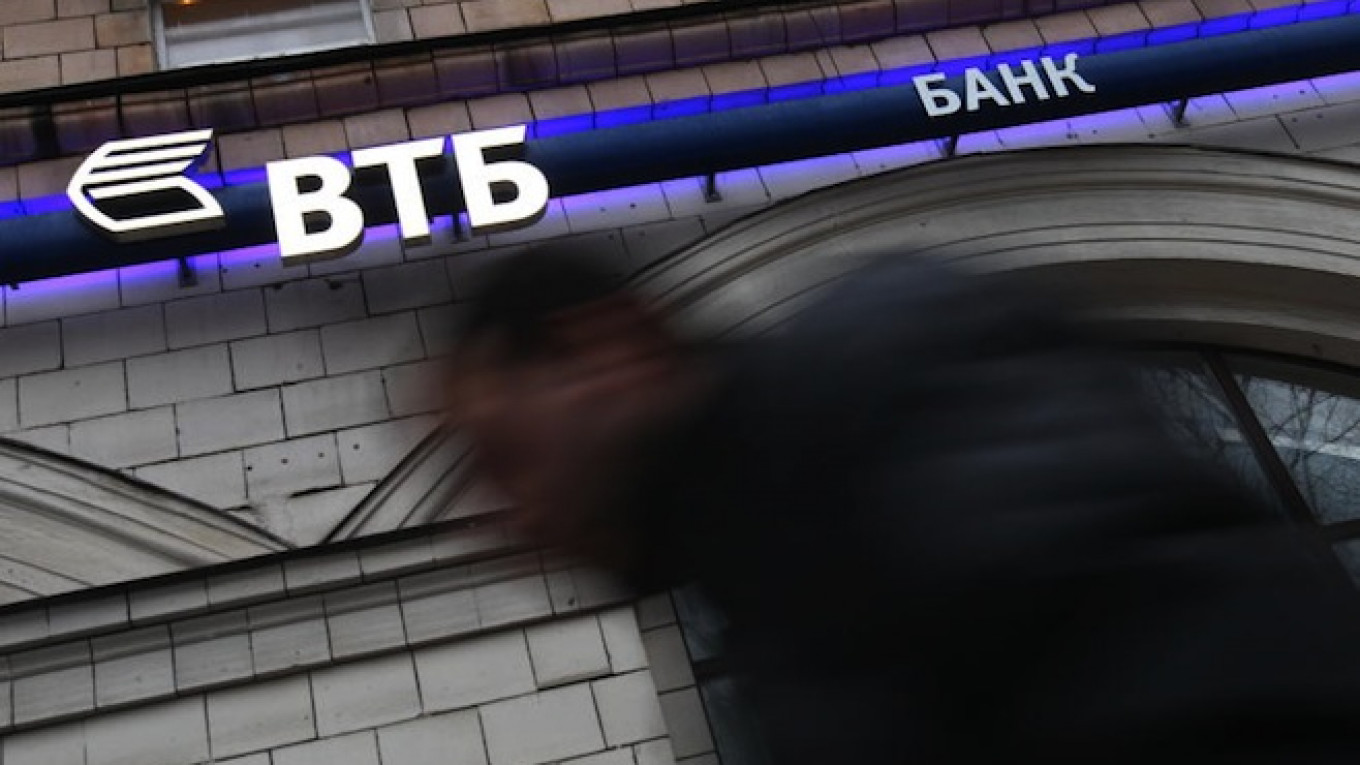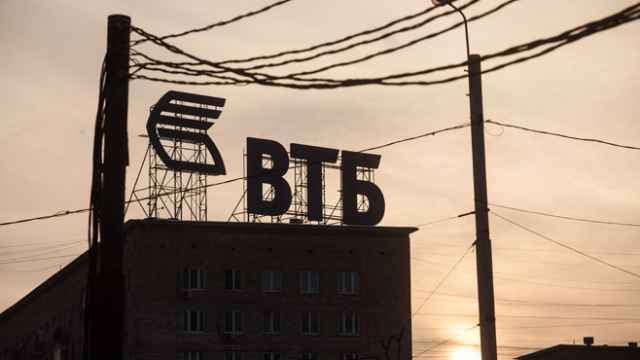Russia's second-biggest bank, VTB, expects significant losses this year if crippling Central Bank interest rates are not lowered, a senior bank official said Friday.
State-controlled VTB, along with larger rival Sberbank, is under Western sanctions imposed over Moscow's role in the Ukraine conflict.
"Given the geopolitical situation today, sanctions against Russia, fundraising is very difficult, with the Central Bank remaining the only way," Herbert Moos, VTB deputy CEO, told a conference call.
Russia's Central Bank cut its main interest rate to 14 percent from 15 percent on Friday, after a spike to 17 percent late last year to try to tame inflation spurred by sanctions. It said it would be ready to continue softening its monetary policy when inflationary risks ease.
Speaking minutes before the Central Bank's rate decision, Moos said that under current rates, VTB would show negative margins for many of its businesses and incur "significant" losses in 2015.
VTB's return on equity — a key measure of profitability — fell to 0.1 percent last year from 11.8 percent in 2013.
Its net interest margin was down to 4.1 percent from 4.5 percent in 2013, hit by the Central Bank's rate hike in December.
VTB sees its corporate loan portfolio growing by 10 percent this year and a flat retail loan portfolio.
Profit Close to Zero
On Friday, VTB said it made a profit of just 800 million rubles ($13 million) in 2014, implying it made its first quarterly loss since 2009 in the fourth quarter as sanctions and an economic downturn weighed.
A poll of analysts had predicted the bank would post a net loss of 2.6 billion rubles ($42 million) for 2014.
The bank reported a net profit of 5.4 billion rubles ($85 million) for the first nine months of the year, which suggests VTB lost 4.6 billion rubles ($75 million) in the fourth quarter.
"Our clients were affected by an economic slowdown and tough geopolitical environment, as well as by the rapid depreciation of the ruble and subsequent spike in interest rates," Andrei Kostin, VTB chief executive, said in a statement.
VTB also said on Friday its provisions for bad loans jumped to 275.4 billion rubles ($4.5 billion) in 2014 from 99.2 billion rubles ($1.6 billion) a year earlier.
VTB lost around 85 billion rubles ($1.3 billion) in 2014 in Ukraine, where some 6,000 people have been killed since last April in fighting in the east between pro-Russian rebels and Kiev's forces.
Of VTB's losses in Ukraine, around 45 billion rubles ($736 million) were in the fourth quarter, Moos said, listing loan-loss provisions, forex losses and losses on securities among other factors.
It received 214 billion rubles ($3.5 billion) in state support last year to boost its capital and 100 billion rubles ($1.6 billion) from the National Welfare Fund to finance investment projects.
The bank's shares were little changed after it published its results but later lost ground to lose 1.8 percent by the close of trading. The broader MICEX stock index lost 2.2 percent.
VTB posted net profit of 100.5 billion rubles ($1.6 billion) in 2013.
Russia's Central Bank expects the economy to shrink by 3.5-4 percent this year.
A Message from The Moscow Times:
Dear readers,
We are facing unprecedented challenges. Russia's Prosecutor General's Office has designated The Moscow Times as an "undesirable" organization, criminalizing our work and putting our staff at risk of prosecution. This follows our earlier unjust labeling as a "foreign agent."
These actions are direct attempts to silence independent journalism in Russia. The authorities claim our work "discredits the decisions of the Russian leadership." We see things differently: we strive to provide accurate, unbiased reporting on Russia.
We, the journalists of The Moscow Times, refuse to be silenced. But to continue our work, we need your help.
Your support, no matter how small, makes a world of difference. If you can, please support us monthly starting from just $2. It's quick to set up, and every contribution makes a significant impact.
By supporting The Moscow Times, you're defending open, independent journalism in the face of repression. Thank you for standing with us.
Remind me later.





